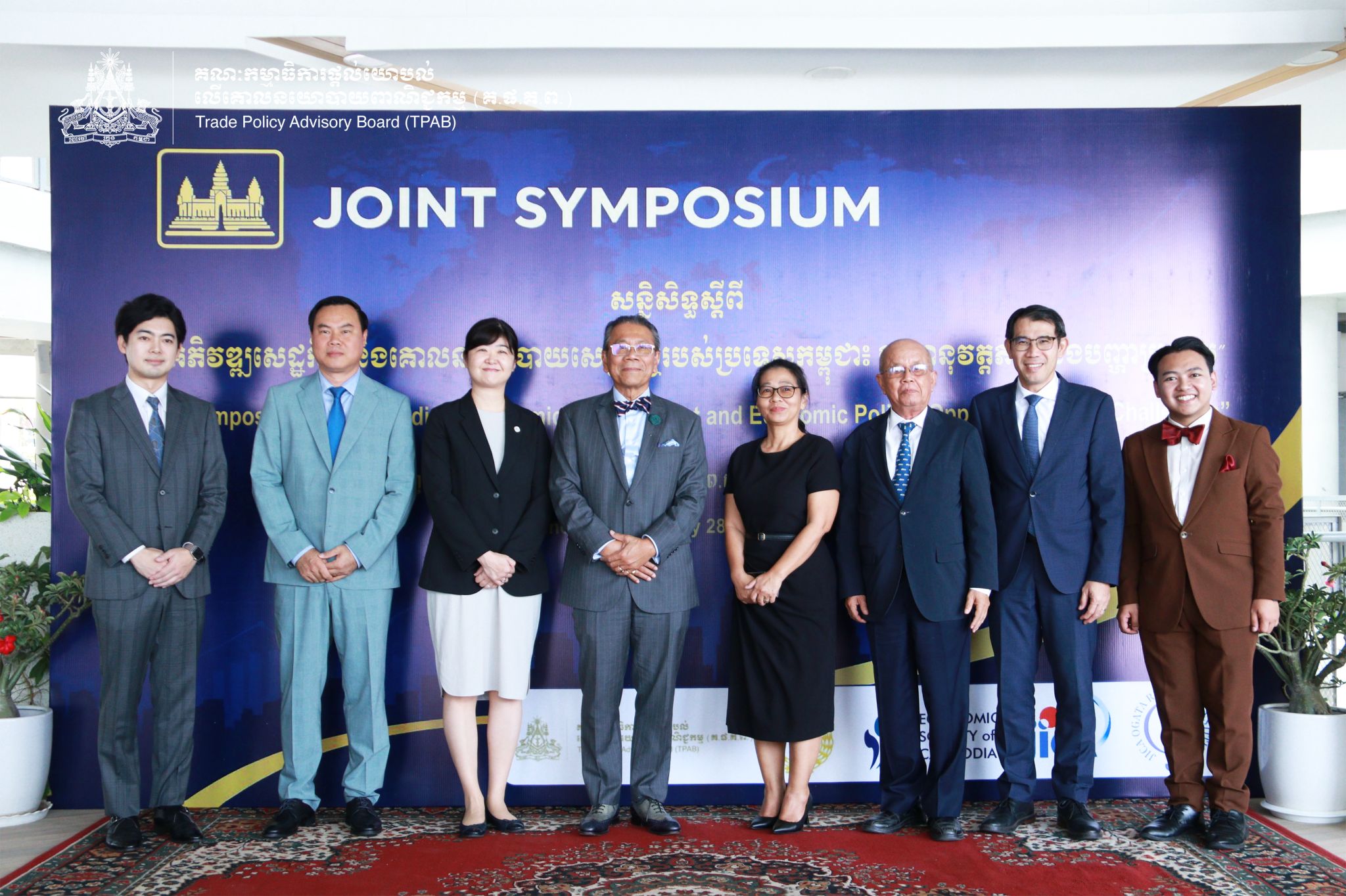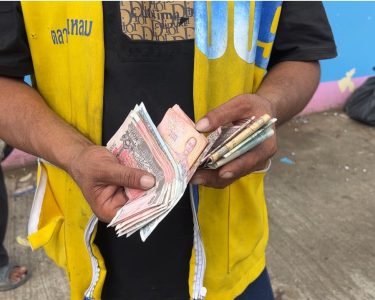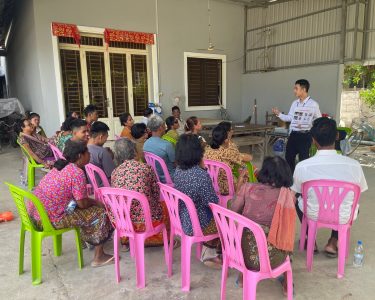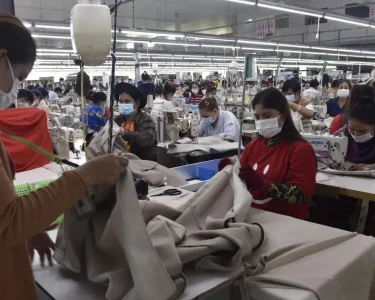Cambodia Investment Review
Senior Minister H.E. Prof. Dr. SOK Siphana delivered the opening remarks at the Joint Symposium on Cambodia’s Economic Development and Economic Policy: Opportunities and Challenges, underscoring the country’s urgent need to align policy frameworks with its development ambitions and future investment prospects.
The symposium, held at the Institute for Banking Studies, was jointly organized by the Trade Policy Advisory Board (TPAB), the Japan International Cooperation Agency (JICA), the JICA OGATA Research Institute, the National Bank of Cambodia (NBC), and the newly established Economic Society of Cambodia (ESC).
Strengthening Investment-Ready Policies
Dr. SOK, who also serves as Chairman of TPAB and Founding Chairman of ESC, emphasized that Cambodia’s anticipated graduation from Least Developed Country (LDC) status by 2029 presents both a milestone and a critical inflection point. He noted that while this transition reflects decades of progress, it will also trigger the loss of preferential trade benefits and introduce more complex scrutiny of Cambodia’s economic policies from the global investment community.
Read More: Opinion – How Can Cambodia Keep Women in the Workforce After its LDC Graduation in 2029?
“Graduation from LDC status will mark a period of heightened expectations in areas such as international trade, economic governance, and investment readiness,” Dr. SOK stated. “To avoid falling into the middle-income trap, we must sustain economic momentum by ensuring our policies are robust, forward-thinking, and attractive to both regional and international investors.”
The symposium aimed to address policy strategies that will help Cambodia build resilience and foster inclusive economic growth, particularly in trade, monetary policy, and financial inclusion—key areas for attracting long-term, quality investment.
JICA’s Role in Infrastructure and Economic Growth
In his speech, Dr. SOK praised JICA’s six decades of partnership with Cambodia, highlighting infrastructure investments that have supported national development and laid the groundwork for private sector confidence. These include the Chroy Changvar Bridge, Kizuna Bridge in Kampong Cham, Tsubasa Bridge in Neak Leoung, upgrades to National Road No. 5, and enhancements at the Sihanoukville Port.
“These projects not only symbolize Japan-Cambodia friendship but have significantly improved national and international connectivity, directly spurring growth and enhancing the investment climate,” he said.
Dr. SOK added that JICA’s contributions serve as a model for how infrastructure investment can yield long-term economic dividends. “We must continue to pursue infrastructure and logistics improvements that enable Cambodia to serve as a competitive gateway for regional trade and investment.”
Collaborative Path Forward
The event also marked the formal introduction of the Economic Society of Cambodia (ESC), a professional network bringing together economists, researchers, and policymakers to foster evidence-based policy formulation. The ESC is expected to play a pivotal role in advising the government on development strategies that integrate economic theory with practical policymaking.
“The ESC and TPAB together will function as a center of excellence, ensuring Cambodia’s economic and trade policies remain aligned with investor expectations and regional integration trends,” Dr. SOK explained.
He called for unity among government ministries, the private sector, academia, and local communities in formulating and implementing investment-friendly policies. “No single entity can navigate these challenges alone. Our collective efforts are key to unlocking Cambodia’s next phase of economic transformation.”
Looking Ahead
The symposium’s discussions are expected to feed into policy recommendations that will shape Cambodia’s investment strategy ahead of LDC graduation. Topics under review include financial sector inclusion, export diversification, private sector development, and the role of digital economy in driving productivity.
“Today’s event is not just about dialogue—it is about producing practical solutions to strengthen our policy environment and secure Cambodia’s place as an attractive, reliable, and forward-looking investment destination,” Dr. SOK concluded.
As Cambodia prepares for its next development phase, events such as this underscore the country’s commitment to crafting a stable, transparent, and collaborative economic environment—critical attributes for long-term investor confidence.





